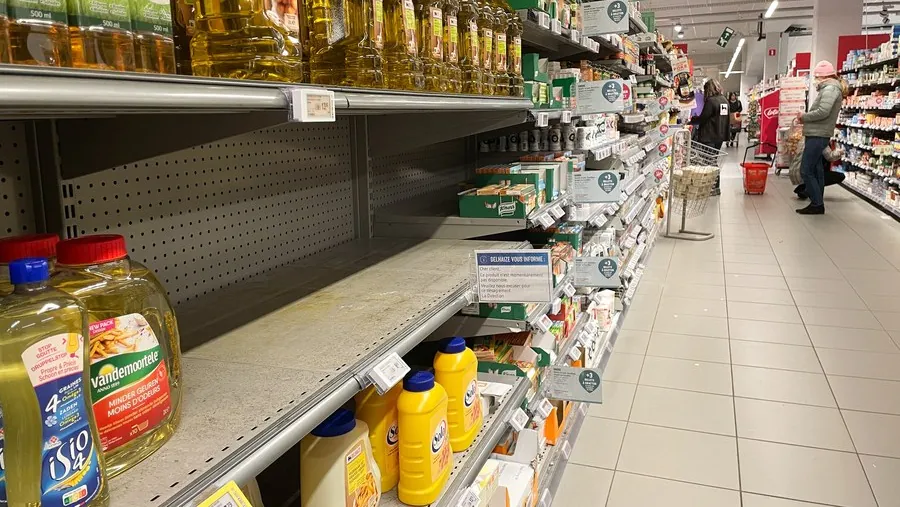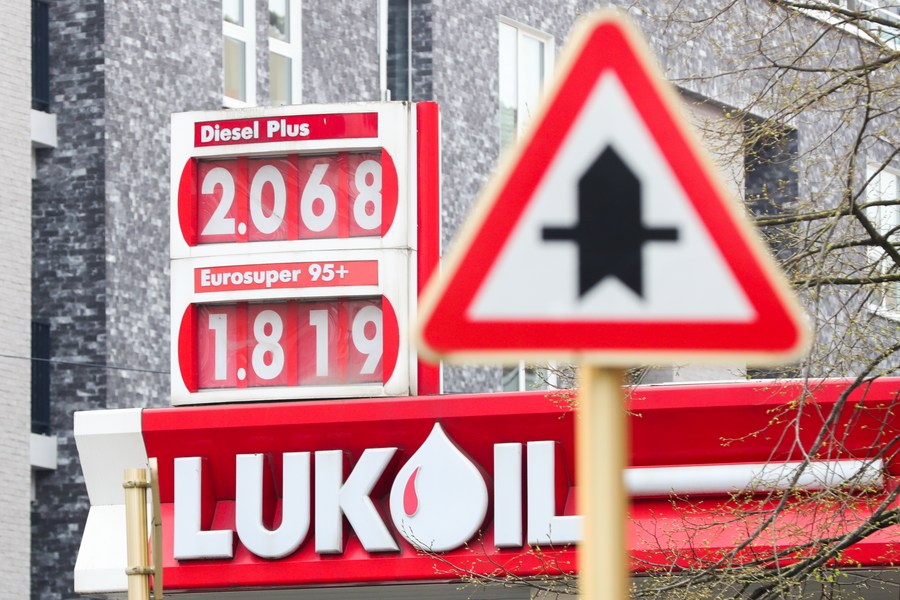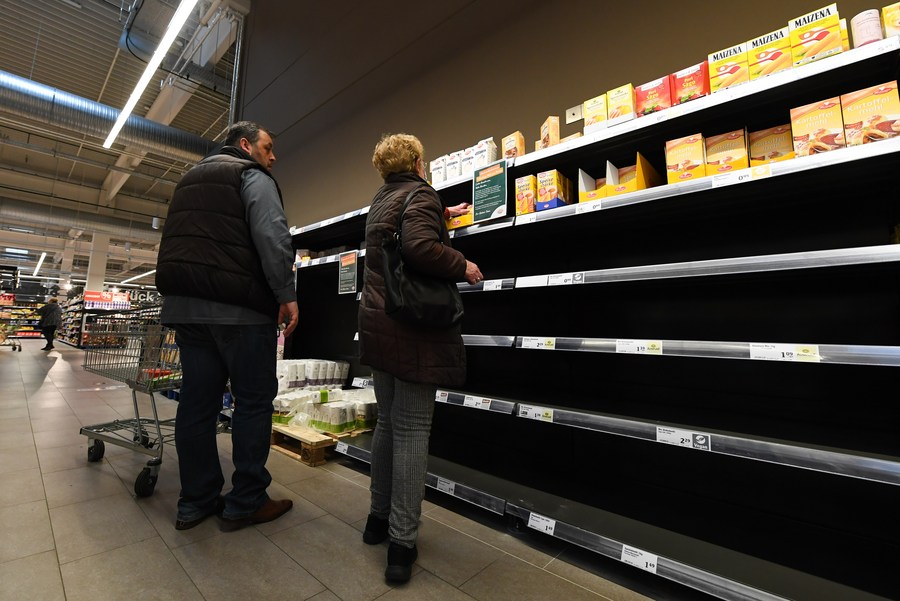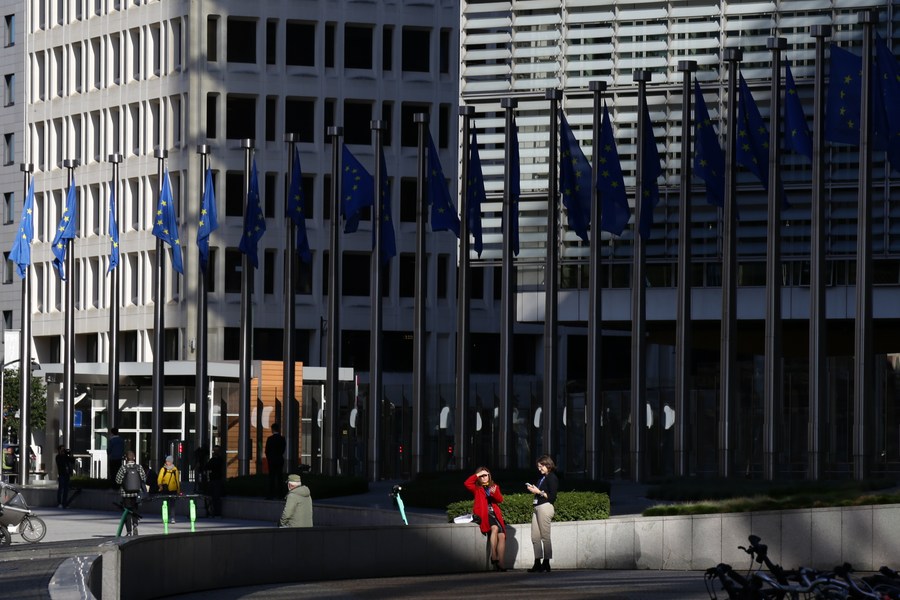

Artykuł partnerski
PARIS, Feb. 22 (Xinhua) — One year into the Russia-Ukraine conflict, France and the rest of Europe are finding themselves in a delicate position, teetering under the impact of inflation, an energy crisis, and slowing economic growth.
INFLATION, ENERGY CRISIS
The Russian-Ukrainian conflict has pushed up inflation in France. Price hikes have reached record level in the country since February last year.
Data from the National Institute of Statistics and Economic Studies (INSEE) show that France’s annual inflation rate stood at 5.2 percent for 2022, after 1.6 percent in 2021 and 0.5 percent in 2020.
Energy prices alone have increased by 23.1 percent yearly, followed by 6.8 percent for food and 3 percent for manufactured goods and services.
Energy prices in the country reached record high in 2022, with natural gas traded at 340 euros (364 U.S. dollars) per megawatt-hour (MWh) on Aug. 26 last year, against under 30 euros (32 dollars) per MWh at the same time in 2021.
Faced with soaring energy prices, the tariff shield introduced in 2021 by the French government has been extended, particularly for small businesses. An Energy Sobriety Plan was officially unveiled on Oct. 6, 2022, aiming to reduce the country’s overall energy consumption by 10 percent within the next two years and by 40 percent by 2050.

France’s energy sobriety plan will cost 800 million euros (785 million dollars) to the country, Minister for Energy Transition Agnes Pannier-Runacher said.
Public lighting in the streets are on for less time and less intensively, companies must commit to switching off the lights in unoccupied buildings, and working from home is encouraged in public administrations.
The plan also requires that heating should be lowered in offices, swimming pools and gyms, and the use of hot water must be reduced in offices.
IMPACT ON LIVING
Baguette, essential for the French, is an indicator of the cost of living in France. In 2022, its price surged several times, passing the threshold of 1 euro (1.07 dollars) per baguette in many bakeries.
At the same time, the price of wheat fluctuated from 180 euros (193 dollars) to 460 euros (492 dollars) per tonne at the beginning of the Russia-Ukraine conflict, to stabilize at around 360 euros (385 dollars) per tonne. This surge in prices has directly affected consumers’ wallets.
„Before, I didn’t pay much attention to the prices when I was shopping, but with inflation, I watch more carefully,” a woman named Helene told Xinhua.

Many French people have chosen to lower the temperature of their houses to reduce expenditure. Daphnee, who lives in an old house covering an area of 130 square meters, has drastically lowered the temperature at her house in fear of a high energy bill.
„I feel cold, so it was a sacrifice, but in the end, I realized that we were fine at home with 18 degrees Celsius, all you need is a hot water bottle for the night,” she said.
French companies are also hit hard by the soaring energy prices.
Last October, over 300 companies alerted the French government to the negative effect of the surging energy prices.
More than one out of two French industrial companies said they had suffered consequences from the energy crisis and their production bottlenecks had affected business profitability.
A survey conducted in October last year showed that 80 percent of the country’s small and medium-sized enterprises worry about their survival.
And the trend continues. According to a study on corporate insolvencies, the rebound in bankruptcies that began in 2022 is not over and companies face a triple threat of weaker growth, reduced margins and deteriorating financing conditions in 2023.
SPILLOVER EFFECT
The European Commission forecasted that the French economy would grow by 0.6 percent and 1.4 percent respectively for 2023 and 2024, and the German economy would grow even lower, by 0.2 percent and 1.3 percent respectively.
In the fourth quarter of 2022, six of eurozone countries showed negative economic growth, including Germany and Italy, whose growth declined by 0.2 percent and 0.1 percent respectively.
The two countries were hardest hit by the Ukraine crisis, as both have export-driven economies and depend heavily on natural gas from Russia, which has been disrupted following sanctions against Russia.
With access to Russian gas becoming increasingly difficult as a result of the crisis, European countries had to switch to much expensive American liquefied natural gas (LNG).

However, the United States sells its LNG to Europe at „four times” the price at which it sells to American suppliers, said French Economy and Finance Minister Bruno Le Maire last year, who feared that the United States could benefit from the situation to the detriment of European interests.
He insisted on the need to build „economic relations that are more balanced on the energy issue between our American allies and the European continent.”
Le Maire’s remarks came just days after French President Emmanuel Macron expressed his dissatisfaction over LNG imported from the United States and Norway.
„We are going to say with great friendship towards our American friends, our Norwegian friends, that 'you are great, you provide us with gas.’ But there is one thing that can’t work for a very long time, that is we can’t pay for gas that is four times more expensive,” he said.
According to data and analytics firm Kpler, the EU imported a total of 94.73 million tonnes of LNG in 2022, and the United States accounts for roughly 41 percent of the imports, becoming the EU’s top LNG supplier.
Besides, the consequences of the Inflation Reduction Act, a massive U.S. plan of 369 billion dollars of industrial subsidies announced in the summer of 2022, poses a new trade threat for Europe. ■











